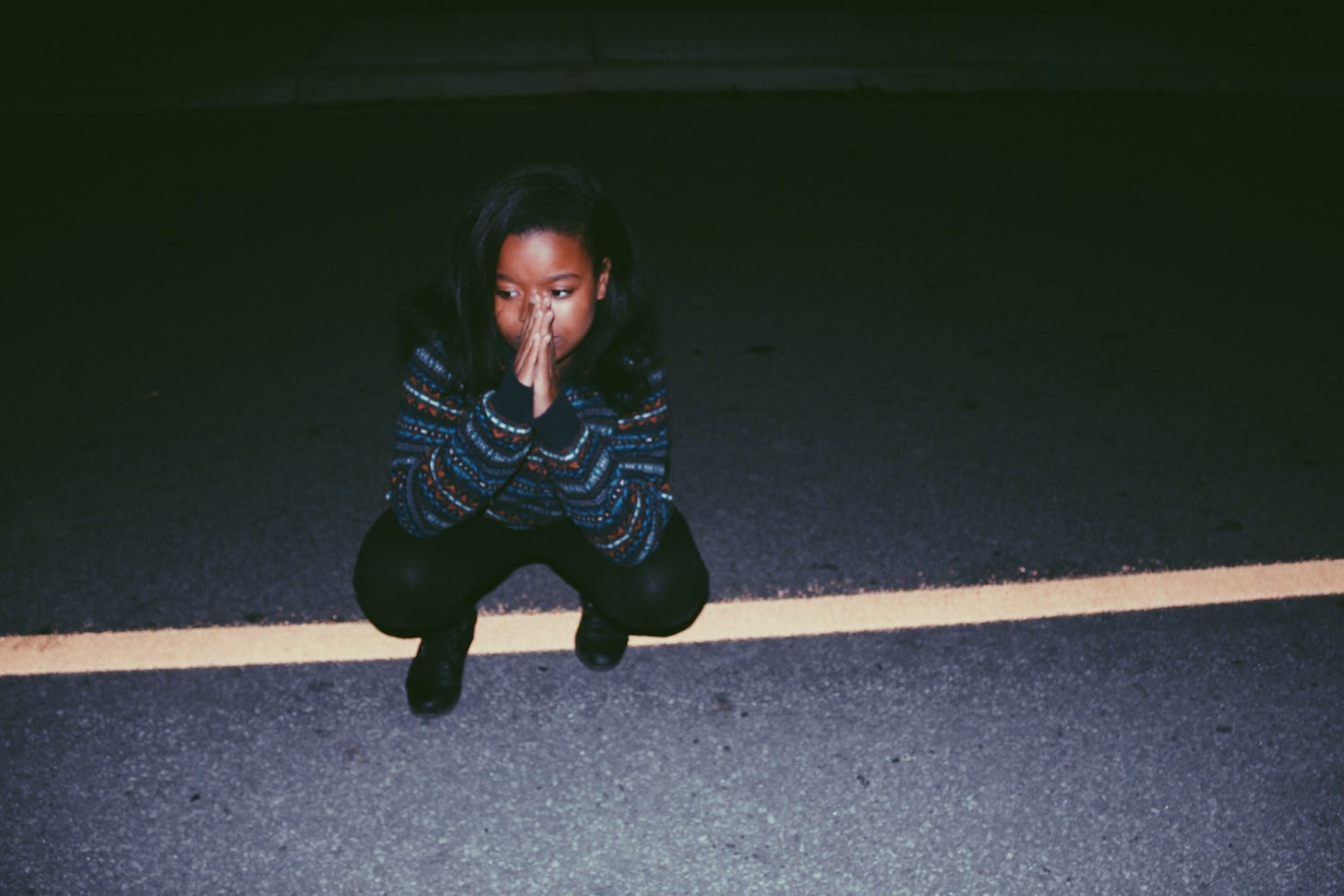Saudade: we become ourselves
Where does it all lead? What will become of us? These were our young questions, and young answers were revealed...
I have a tendency to ache, a symptom of a bleeding heart, that frequently leaves me longing for the past. This is a trait picked up from a lifetime of residing in a city that no longer understands the concept of devotion. I refuse to understand the notion of letting go, as it has never offered me what was needed to survive. I offer up a sense of vulnerability as sacrifice when I speak about home. I mourn the days of youthful jubilance, when spaces were not merely footnotes to a city’s arts and culture sector, but backdrops to adolescent debauchery, stepping stones in our origin stories.
A syndrome, a symptom, a city in anguish—nothing but lifeless glass buildings that do not represent its people, body modification, an unrecognizable entity gasping its last breaths of mortality. My immigrant mother sacrificed her homeland as a child for a form of stability. Fleeting moments of refuge located in conversations with the Nigerian and Jamaican aunties selling 4C hair products and bootleg dvds at the Weston Flea Market. Hailing from the islands with her thick Creole dialect, later reflected back to me in my twenties as mimicry by the likes of ras trent white men who have never known the saccharine smell of jerk spice on Keele and Eglinton. My immigrant father and all his complexities; owning and operating a taxi cab for most of my childhood, strolling into our home into the wee hours of the morning. Something I would later grow resentful of at a young age, embarrassed by his occupation never matching up to that of kids at my affluent French immersion school, whose parents were doctors, lawyers or stay-at-home mothers. I can still smell his cheap cologne and an aspiration for upward mobility, dreaming of becoming those same men he chauffeured—preoccupied by their business calls and a lack of regard for the outside world. My young body, too naive to comprehend sacrifice but old enough to feel the effects of misplaced hope. Throughout it all, we had the evidence of communal barbecues and baseball games providing us with safety. Community once felt in a city that offered so much space for daydreaming.
I write to you, beloveds, as I am a few short weeks from leaving Toronto. I have tried my best to write this apology, not to my comrades—who continue the long battle of living in a city that does not recognize their excellence—but to the artifacts that will forever live within me. I have contemplated the mourning period; searching for memories while acknowledging that the grief has been a decade of observing destruction. I don’t think it is within the human condition to experience this much loss, but to be from Toronto is to know the heartbreak of an absent parent. On days my parents were unable to nurture me, I asked all the questions of the universe, from parking lots to crumbling buildings to streets with unpronounceable European names. A city begs to be understood for its delusions; we must be grateful for the hands that feed us, for they have sacrificed too much for our comfort and entitlement. To complain is a sin in the eyes of a higher power, but to be gracious is to sit and watch as heinous acts are committed against the very history it took generations to create.
This city will gaslight us, but it is within our rights to ask for more. I refuse to continue focusing on all that is wrong, but I will spend the last bit of time we have left reminiscing about the past. We once were children seeing the city for the first time on our own. The decaying Wabash factory building, sharing our fears of aging while simultaneously knowing the world offered so many exciting unknowns. Those moments were everything to us then, and so much more now. Finding the seeds of love we were unable to feel at home and transplanting them within the friends and lovers we lost ourselves within. NIMBYs on Christie complaining about the ghetto-ness of youth and the heavy wooden clank of scrappy, malnourished teens with their willingness to spend sunrise to sunset attempting to land their skateboard tricks. We flooded streets with a bass that thudded, “Bust down, Thotiana (Bust down, Thotiana) / I wanna see you bust down (Over) / Pick it up, now break that shit down (Break it down)” from bluetooth speakers. We travelled from crowded subways to lonesome streetcars on our way to each other, taking our souls back to where they originated at the end of the night. Time was infinite, now it escapes. We were characters in a film of our own making, a world alone. We crossed bridges at night, lights flashing along the viaduct, hands held like we could hold onto this forever. In a blink, no longer were there hangover breakfasts, after nights spent screeching the lyrics to Age of Consent, in some one or another’s basement. Every moment playing like a broken television screen on loop. Forcing me to watch as these moments so importantly etched inside of me, flash at lightning speed. I remember resting my tired head on the shoulders of whoever was available; hands held, and protected for the time being.
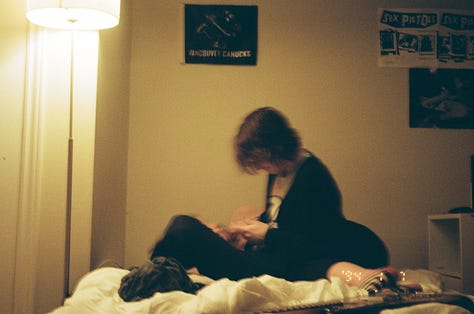
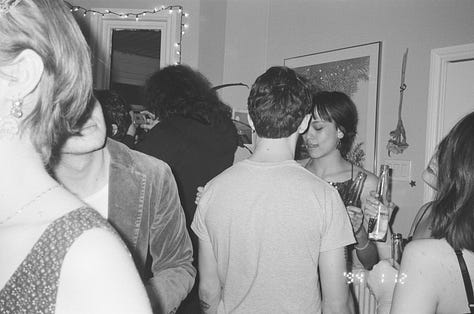
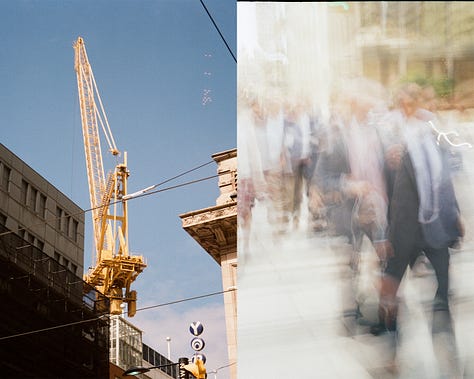
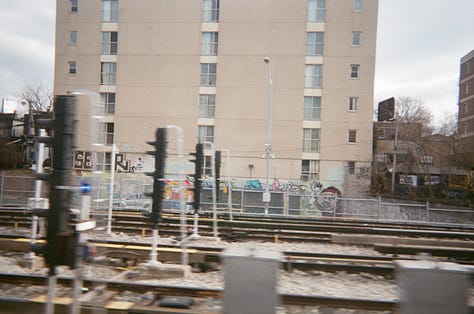

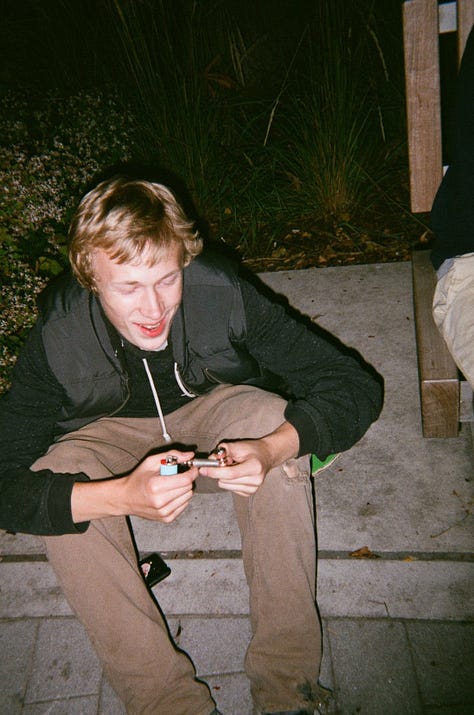
Remembering is such a convoluted theory that clings like ticks—wooded grass full of secrets ready to enter the bloodstream and penetrate our evocation until we’re depleted. I am exhausted and brought to tears while recounting this all for you. I fear that despite my efforts, I’ll be unsuccessful in recreating what we've created here. For a time, I believed that the someone or something that wanted me “whole” was my city, but as time drags on, I–we– have become a hindrance to the status quo. I have become forced to self-initiate my own vanishing, and when I’m gone there will be nothing left but a box of old photographs and stories that vaguely resemble home. I promise we will see each other soon, schedule dinners to lament about what could’ve been, to corroborate the recollections who’s proof has been erased. We’ll rehash the purpose of holding onto something that no longer serves us. I’ll say something along the lines of: “You seem well, your sober thoughts more articulate than I could have ever imagined”. To hear your voice for the first time in years, as the bass of it shivers down my spine. You make me realize that this chapter of my life has officially come to an end. I’m choosing to leave this space with everything on my sleeve.
No matter how obsessed you've been with your own vanishing, there will always be someone who wants you whole.
– Hanif Abdurraqib, They Can't Kill Us Until They Kill Us (2017)
I refuse to let the interlopers ruin a community that birthed us, a kinship they’ll never know. The “Leftovers” as Jeremiah Moss highlights in Feral City: On Finding Liberation in Lockdown New York (2022), illustrate the people who have always been here and in the context of his writing, people who stayed in New York during the lockdowns. The “leftovers” have always been and continue to be the ones who see the city in its expansiveness; its queerness, its working class-ness, its chaos while steeped in love for the culture and the history within the folds of a changing city. The interlopers will modify and sanitize our creation, developing a frankenstein-esque version bathed in “purity” for a new generation of soullessness. No longer an eccentric playground for the radically queer, but a city sold for parts to the highest bidder. They will never have what we created, but that’s just it, they never wanted it to begin with. I am grateful for what we were able to do, that will be what the kids of the next generation of yearners, freaks and weirdos will romanticize about.
With wilted eyes, there will never be another version of this. The movie ended years ago, it happened so quickly, we never got to say goodbye and that is the attempt I am trying at now. We will all be gone someday, no longer able to hold onto the fantasy, the city no longer a reflection of the lives we lived. It barely remembers who we were now but at least we do.
2. What brought us here?
I had a call with an ex about a month ago after I returned from a month long trip in Iceland. I returned feeling ready to make the last 2 months of living in Toronto a meditative experience. I wanted to be able to move on from everything, start a new life of new people, places and kinship. I felt like my only way to make strides toward that goal was to close all those chapters that I never got to finish. I protected myself from a lot of abusive behaviour but for some reason, this one specific person had been on my mind for a few years.
We were both 19, moving towards the beginning of our twenties right before the pandemic started. As tumultuous as our care and disregard. It felt weird to hear their voice on the other side of the phone. A breath and laugh I last heard in the winter of 2020, memories I try to forget but this time hearing them was like meeting them all over again.
I’ve realized that I’ve always wanted people whole, at times to my own detriment. This “goodness” inside me realizes that there is no reason to leave anyone behind. If a person is not at risk of perpetuating further harm, beyond rehabilitation, then I believe we should find it within ourselves to make amends. This does not mean forgiving someone for the overt harm they may have contributed but in this case, the conversation offered me a chance to better understand how their struggles with addiction manifested in our relationship and humanized them in a way I was unable to see for years after things ended. I harboured resentment for their past actions and myself for allowing these things to happen, but love does not offer any real sense of security. In many ways my relationship with them and my descriptions of losing myself within this city have key parallels that center grief and acceptance. Cities are flawed, as are people, yet sometimes the most important thing we can do to feel peace is acknowledge the conditions in which we were harmed and move forward. I don’t know where we’ll end up but I’m confident to say I’m happy we gotta get through some of the toughest parts of our young lives together. We pack our lives into rental trucks for new cities, we leave relationships that no longer serve us and through those experiences we become ourselves.
Where does it all lead? What will become of us? These were our young questions, and young answers were revealed.
It leads to each other. We become ourselves.
– Patti Smith, Just Kids




